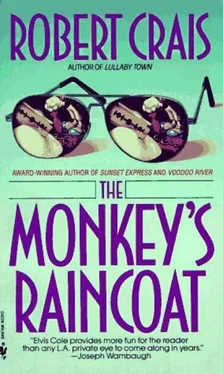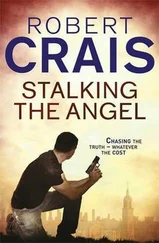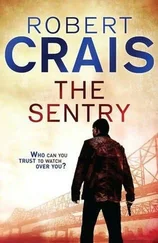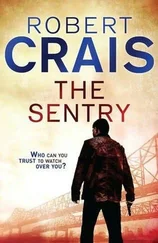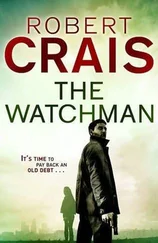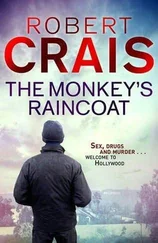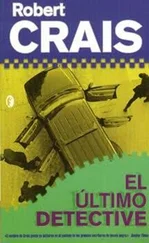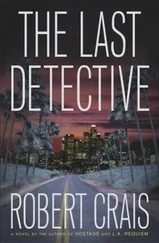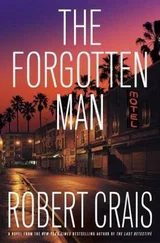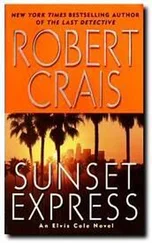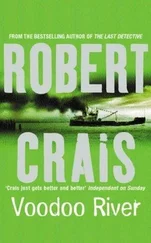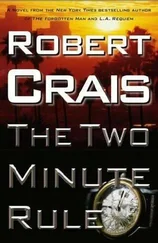Ellen sipped the scotch. "She wanted to put the girls on. I said no. I didn't know what to say. I don't think I could talk to them without crying."
I nodded, listening but not listening, straining to hear outside. Ellen didn't notice.
"Janet said they need me to be strong now, and I don't know if I can. I'm thirty-nine years old. I don't want to be weak. I don't want to be scared."
"Then don't be," Pike said.
Ellen and I both looked at him. He used the flat of a heavy knife to push diced onion into a small bowl. He covered the bowl with Saran Wrap.
"Don't be," she repeated.
"This Janet your friend?" Pike said.
"Of course."
Pike shook his head and put the bowl in the ice box.
The phone rang. I picked it up.
A thick voice with a heavy Mexican accent said, "The boy wants to speak with his mother."
"Who is this?"
"Put on the mother."
I motioned Ellen over, raising a finger to make her pause as I ran to pick up the living-room extension. She looked confused. When I had the phone I mouthed, "Perry."
She blurted, "Perry?" into the phone as Pike moved to stand by her, watching me.
The harsh voice said, "Listen."
There was a thump on the line, then a scuffling, whimpering sound, then a long, piercing little-boy shriek that made a clammy sweat leak out over my face and chest and back. Ellen Lang screamed. Pike jerked the phone away from her. She screamed "No!" and slapped at him, clawing to get the receiver back. He pulled her close, holding her tight against him. She hit and clawed and made a deep-in-the-throat gargling sound and got the edge of his hand in her mouth and bit until blood spouted down along her chin and wrist and onto Pike's shirt. He didn't pull away.
I shouted something into the phone.
The shrieking didn't stop, but the voice came back on. It said, "You won't fuck up again."
I said, "No."
"The boy is alive. You can hear him."
"Yes." I felt like I was going to choke.
"We call you again."
I looked at Pike over the dead connection.
Ellen thrashed and cried and finally grew still, but even then her pain was a physical presence in the room.
Pike went into the little bathroom, stayed a few minutes, then came out with gauze taped to his hand and his skin orange from Merthiolate. Ellen squeezed her eyes shut when she saw his hand.
Pike said, "Do you have any Valium or Darvon for her?"
I told him no. He slipped out the kitchen door. I poured more scotch and brought it to her. She shook her head. "I've been drinking all day."
"Sure?"
She nodded.
"Want a hug?"
She nodded again, and sighed deeply as I held her. After a while she said, "I want to wash."
She took the bag of clothes upstairs, and in a few minutes the water began to run. I turned on the evening news with Jess Marlowe and Sandy Hill, Sandy talked about Navy spies in San Diego. Not particularly relevant to Perry Lang unless Duran was smuggling state secrets to the Russkies. But in L.A., anything is possible. The water ran for a long time.
When Ellen came back downstairs she was wearing some of the clothes I'd brought and the white New Balance. Her face looked clean and blank, less vulnerable than at any time since I'd met her. She said something that surprised me. She said, "God, I could use a cigarette."
I couldn't see her having ever smoked. "When Joe gets back, I'll get you some."
She nodded slightly, then shook her head. "No." She stood next to the TV and crossed her arms. I couldn't tell if she was looking at me or past me. "I quit almost six years ago. I just stopped. Janet says she goes crazy after about a day, but when I wanted to stop, I just stopped."
"Tough to do."
She said, "What did the police say?"
I thought about lying, but couldn't think of anything good enough to explain why the cops weren't here or we weren't there, so I said, "It's a Special Operations case now."
"What does that mean?"
"It means the case was taken away from Poitras to be handled by some hotshots downtown."
"What are they doing?"
"I don't know. They shut Poitras and me out. They said they might come out to talk to you."
"When?"
"Later."
She looked at me calmly. She said, "But what are they doing about… all of this?" She gestured around her.
"I spoke with Joe this morning. Did he tell you anything that happened when I went to the cops?"
She shook her head, so I told her. When I was done she asked if she could have a glass of water. When I came back with it she looked just as she'd looked when I left. As if the idea that somebody on the police force could cave in to political pressure was an everyday and undisturbing event.
She said, "Sergeant Poitras goes along with this?"
"He has to. But he doesn't like it, and he's fighting it. He and his lieutenant were downtown this afternoon, trying to find out who's damming the works."
She said, "Unh-huh," and drank the water. When the glass was empty she said, "My older daughter, Cindy, she hates me. She screams that if I were a better wife, her father would be happier." She said it as if she were telling me she preferred tan shoes to cordovan.
"She's wrong."
"I tried being the best wife I could."
"I know."
"I tried."
"There's some insurance," I said. "Not a lot. But some."
She didn't ask how much.
I sipped some of the scotch I'd poured for her. I said, "Look, I'll find the dope or where the dope went and who has it and we'll work something out with Duran. Then we'll bring Poitras in and put it in his lap, and this will end."
"But that man, O'Bannon, he said you were supposed to stay away."
I shrugged.
She nodded and turned away and looked at the books and the figurines and the photos and the dark steel knight's heraldry that line my shelves. A girlfriend who was a pretty good carpenter built the shelves for me from unfinished redwood. A place for me to keep my junk, she said. The TV sat at about eye level, the stereo beneath it, my books and mementos and treasures on either side. The latex Frankenstein mask was on a Styrofoam head. My junk. Out from the canyon, we could hear the first faint yelps of the coyotes, gearing up for a sing.
I drank more of the scotch but found it sour. I took the glass into the kitchen, threw out the booze, and went back into the living room with a can of pineapple juice.
"Mr. Pike says you read these same books over and over," Ellen said.
"That's true."
She touched different volumes. "I know some of these. I read the histories of King Arthur when I was in college. I worked as a teacher's aide. I read them to the children when the teachers went on break."
"I'll bet you enjoyed that."
"Yes." Ellen turned to me from the books. "Was Mr. Pike really a policeman?"
I was impressed. "He must like you. I've never known him to tell that to anyone."
"Then he was."
"For a while. Pike will never lie to you. You don't have to doubt anything he says."
"He says he's a professional soldier."
"He has gun shop in Culver City. He owns the agency with me. But sometimes he goes to places like El Salvador or Botswana or the Sudan. So I guess that makes him a part-time professional soldier."
"Was he in Vietnam with you?"
"Not with me. He was in the Marines. We didn't meet until after we'd mustered out and were back here in L.A. Pike was riding in a black-and-white. I was working with George Feider. We met on the job. When Pike and the cops parted company, I made the offer."
"He told me he wasn't a successful policeman."
"He wasn't successful, but he was outstanding. Pike and some of the cops he worked with had what we might call a grave philosophical difference. Guy like Pike, philosophy is all. He rode a black-and-white for three years and for three years he was outstanding. Even splendid. He just wasn't successful."
Читать дальше
